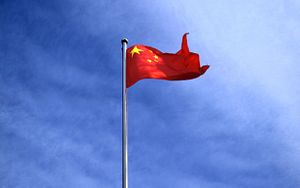Although it was the United States that created a new institute for development cooperation in October — the U.S. International Development Finance Corporation — perhaps its establishment should be attributed to China. By rebranding their attempt with the China influence threat theory, the American advocates for this institute finally got what they wanted and at the same time put China under the spotlight.
Certainly, it is not the first time that China’s development assistance has attracted global attention. China’s aid was in the spotlight at the Beijing Summit of the Forum on China-Africa Cooperation in early September, where Chinese President Xi Jinping announced a $60 billion financial support plan for the continent. Reportedly, one-quarter of the package will be distributed in the form of grants, interest-free loans, and concessional loans.
The announcement of the generous financial support plan only demonstrates again that China is no small player in the development assistance arena. As revealed by the AidData Lab, China spent over $350 billion on development assistance from 2000 to 2014, rivaling the United States, the world’s top donor. Although the proportion of China’s official development aid that meets the definition of the OECD Development Assistance Committee is much smaller than that of the United States (23 percent vs. 93 percent), it is still fairly striking. Moreover, China’s spending on development assistance has been increasing at a breathtaking average rate of 21.8 percent annually, which indicates a promising long-term growth prospect.
However, China’s booming development assistance has been largely processed in a black box. Observers have struggled to figure out how China’s development assistance policy is formulated, how its money is spent, and where that money goes. The most remarkable effort by the Chinese authorities to reveal part of its development assistance secrets took place in the form of two white papers, released in 2011 and 2014, respectively. However, the two papers only contain aggregated data, and it has been four years since the last such document was published.
The lack of transparency leads to complicated consequences. On the one hand, China’s development assistance activities have incurred skepticism and critiques from the outside world. It has been tagged with such terms as “new colonialism,” “economic predator,” and “rogue donor.” While China would like to fight back, the lack of transparency only gives strength to its critics and ties its own hands.
On the other hand, the lack of transparency can easily breed misunderstandings and result in the absence of political support for development cooperation at home. Chinese citizens are never well informed about China’s development assistance programs abroad. They do not understand why China is giving money to foreigners and how assistance to the others can benefit themselves in return. After the announcement of the $60 billion financial support plan in September, the Chinese internet was flooded with misinterpretations and the Chinese public responded with skepticism and even hostility, instead of applause.
The U.S. policymakers’ use of China as a scare tactic, regardless of the actual merit of their argument, reminds Chinese authorities yet again of the importance of transparency in development assistance. China should be aware that, as its development assistance investment is rapidly getting bigger and its role is increasingly witnessed at every corner of the world, it is no longer a marginal actor. Both the world audience and Chinese public are in great need of knowledge about China’s development assistance, and it might be the time for China to give more response.
Zhang Chao is an Assistant Researcher at the Institute of European Studies, Chinese Academy of Social Sciences.

































